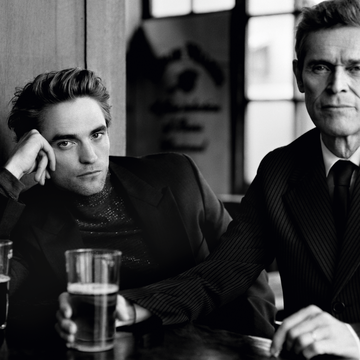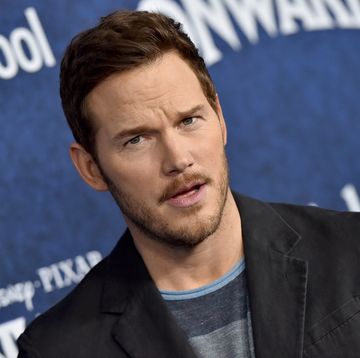When I moved to New York City in 2003, Citibank's "Live Richly" campaign was in its third year of captivating consumers with its anti-materialist wisdom. The advertising operation saw billboards and bus stops all over the city plastered with messages like, "Money can't buy happiness. But it can buy marshmallows, which are kinda the same thing," and "Don't change for a dollar."
The campaign reinforced the vulgar notion that being illiquid and young is ennobling. It found my pennilessness charming. It made it seem as though money was just an afterthought—a brilliant and cynical advertising move for a bank trying to sell equity loans that would increase a person's spending ability. I was 18 and full of hope and cognitive dissonance so I willfully believed that a major bank was capable of having my best interests at heart. I opened checking and savings accounts with Citibank within a few months.
Over the years, these accounts were reliably filled with paychecks that ranged from meager to respectable in their sums, but were then drained almost immediately in the never-ending effort to keep up with bills, rent, and basic necessities. But last year, my income increased substantially after I sold my first book for a healthy six-figure book advance that more than doubled my income and negotiated several attractive writing contracts that paid per word. I paid off a massive chunk of student loan debt and brought my credit card balances down to zero in one fell swoop. My two indulgences were taking a solo vacation to Paris where I bought my first luxury item: a Prada handbag that cost more than a month's rent. But mostly I felt money as an absence more than a presence: the gnawing fear that I would run out of it before my next check arrived replaced by a serenity I only noticed when paying bills and having plenty left over.
I thought back to those ads and saw cruelty where I once saw cleverness in the Citibank adages. Wisdom like, "Sometimes money can distract you from important things. Like important things," grated on me most intensely. The idea that money is a distraction rather than a focal point of any given life was both intellectually dishonest and willfully ignorant of all the important things money absolutely can buy.
That campaign was hardly an isolated case of an advertising effort with a misguided message. So much of the advice we hear about money and work is that our incomes should be secondarily important to our passions. This ignores the reality that there are a finite number of dream jobs in the world and that money enables us to not only to pursue our passions but our most basic human needs: to live in comfortable homes, afford medical care, celebrate milestones, spend time socializing with friends, have children if we want them, raise them, send them to college, pay back our own student loans, save for retirement, and, eventually, die with dignity.
But in a creative field like writing, aspirations to comfort and even occasional luxury can be an anathema to some—those who consider creative work tainted by money. They made remarks about how I should only write about what I truly care about with no apparent regard for the fact that personal passions are finite but financial needs exist until the day we die. Some took it as some kind of profound sadness that I never wrote anything "for myself," only for compensation. That I had labored over writing tirelessly for years (after being in and out of short-lived office jobs and after extended periods where I lived off money earned working in strip clubs) was rarely acknowledged.
The irony of finally having enough money to cover both my basic cost-of-living and simple but sometimes indulgent pleasures is that the experiences must happen largely in isolation. It would be callous to expect a friend struggling to pay rent to go out for an expensive meal, much less come on vacation with me.
I always thought that the old cliché that money can't buy you class referred to how money won't automatically render someone tasteful or stylish. But I've come to think of it as a comment on class mobility more than on refined tastes. There are no easy tickets out of the solid middle class I was born into, or out of the university class I graduated with: buried in debt and with limited professional prospects.
Having escaped the grind of the paycheck-to-paycheck life, when I buy expensive items or contribute large sums to my savings account feels like cheating when I'm surrounded by friends who can't. Combined with the troubling narrative in creative fields that we must be starving if we are truly to be artists, I am uneasy with this newfound comfort. I simultaneously value transparency about wages in my industry and fear that disclosing my successes will foster resentment.
What those Citibank ads did get right is that money is really only useful if you have people to enjoy it with.
When I was barely scraping by, I sometimes fantasized that my wealthier friends might simplygive me some of their excess capital and so I have done this from time to time when a friend mentions a financial struggle. I have paid for dinners and train tickets or simply transferred a sum into their Venmo accounts unprompted. My friends are grateful but understandably suspicious, concerned that I might lord it over them at some later date or expect something in return. I would feel exactly the same way. But I fear that the alternative is to be cold, brushing off their money concerns with clichés, devoid of empathy for a struggle I felt only a short time ago. And there feels like no way to talk about any of this without sounding like some vapid 21st century answer to Marie Antoinette.
Transparency about my income feels like a class duty, a form of resistance against higher earners whom I don't feel at home with even though we share a tax bracket now. Even if disclosing my current financial security invites scrutiny, it is worth it. It's worth it to offer a counter message to the pervasive narratives trying to convince hard-working people that money is a means and not an end, but at no point acknowledging that we require the means if we ever want to make the ends meet.
From: ELLE






